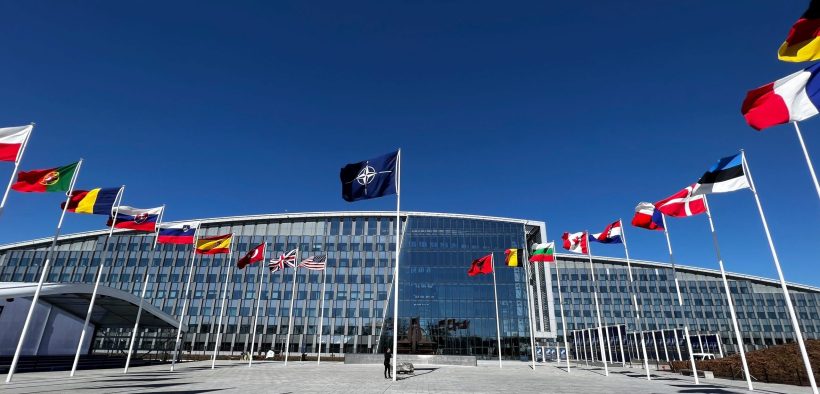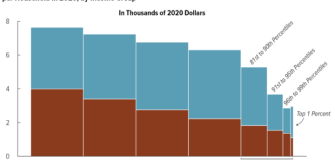America’s Dirty Trick on Ukraine: No NATO
Share

Essentially the same message was delivered by Oleksiy Goncharenko, a lawmaker in Petro Poroshenko’s European Solidarity party.
“In Washington, several sources confirmed to me that Blinken told Europeans to stop talking to Ukraine about NATO. There will be no NATO. The topic of NATO annoys the U.S. elite, and they clearly sent a signal that Ukraine will not become a member of the alliance immediately after the war,” Goncharenko said. “There will be some movements towards the alliance. We will receive some leniency. But the fact is that in 2024 we will not become members, that’s for sure.”
According to reporting by the New York Times, Goncharenko had just returned from Washington where he met with members of both parties in Congress.
Though Goncharenko’s position ensured that his statement, which “appeared to be shedding light on the true state of relations between Kyiv and its allies,” was reported in the Kyiv Post and Strana.ua.
Goncharenko may not be a source to take too seriously. Yet his subsequent remark that Zelensky’s office has “come to terms with this” echoes Zelensky’s admission to the students, even if the detail about Blinken requires confirmation. The realization of the NATO lure deception may have begun months ago, but it may now be really beginning to “percolate through to the Ukrainian leadership” as one expert put it to me.
The dreadful suspicion had begun by the second day of the war when Zelensky complained, “I asked them—are you with us? They answered that they are with us, but they don’t want to take us into the alliance. I’ve asked 27 leaders of Europe, if Ukraine will be in NATO, I’ve asked them directly—all are afraid and did not respond. We were left by ourselves. Who is ready to go to war for us? Honestly, I don’t see anybody. Who is ready to give Ukraine guarantees of NATO membership? Honestly, everybody is afraid.”
It experienced serious growing pains during the NATO summit in Vilnius in July 2023 when a frustrated Zelensky exploded, “It’s unprecedented and absurd when time frame is not set neither for the invitation nor for Ukraine’s membership. While at the same time vague wording about ‘conditions’ is added even for inviting Ukraine.” Despite all the promise, NATO delivered only that it “will be in a position to extend an invitation to Ukraine to join the Alliance when Allies agree and conditions are met.”
Four months later, on November 29, speaking from NATO headquarters in Brussels, Blinken could only offer the same recycled promise as an update. Responding to a reporter’s question, Blinken said, “I think the Alliance in Vilnius was very clear that Ukraine will become a member of NATO when all Allies agree and when conditions are met. That’s the policy. It was clearly stated in Vilnius, clearly reaffirmed today.”
It was on that same day that Zelensky told the student “either we will be in NATO, or we won’t be in NATO. We want to, but—” Perhaps the realization had percolated up to the Ukrainian leadership, and they had now “come to terms with this.”
The dirty trick was that Ukraine never was fighting primarily for NATO membership. It is now clear that, on several occasions in the early weeks of the war, Ukraine was willing to trade NATO membership for territory and peace. That willingness has been confirmed by a host of people involved in the talks, including Naftali Bennett and Gerhard Schröder, both of whom played roles as mediators. But, as Davyd Arakhamia, who led Ukraine’s negotiating team, has recently confirmed, the U.S., U.K., and their partners “actually advised us not to go into ephemeral security guarantees.” They then dispatched then the British Prime Minister Boris Johnson to Kiev to tell Zelensky, according to Arakhamia, that “we would not sign anything with them at all, and let’s just fight.” Bennett, Schröder and Turkish officials who hosted the Istanbul talks have given confirming reports.
Ukraine, it turns out, was fighting, not for their right to join NATO, but for NATO’s right to let Ukraine join. The U.S. wanted Ukraine to fight to defend NATO’s open door policy and its right to expand. NATO was defending not Ukraine but the primacy of the principle that countries can choose their own alliances over the principle of the indivisibility of security that promises that one country cannot purchase its security at the expense of the security of another. As the State Department said at the beginning of the war, “This is a war that is in many ways bigger than Russia, it’s bigger than Ukraine…. There are principles that are at stake here…core principles.”
Kiev may now have fully awoken to America’s dirty trick: Ukraine was meant to fight for NATO, but they were not any time soon, if ever, going to be welcomed into it.
Continue Reading at The American Conservative.













